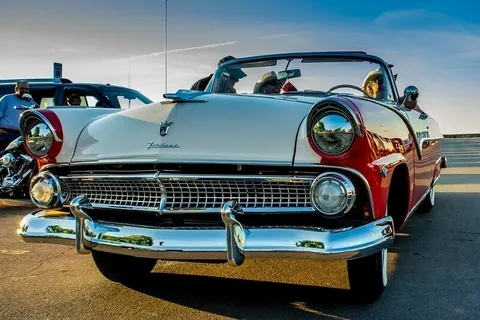Owning a classic car is about more than transportation—it’s about passion, history, and craftsmanship. Whether it’s a fully restored 1969 Camaro or a barn-find Jaguar from the 1950s, every vintage vehicle tells a story. But when it comes time to sell, insure, or even just document your investment, stories aren’t enough. You need numbers—precise, professionally verified ones. That’s where a classic car appraisal becomes essential.
Unlike modern vehicles that depreciate along a predictable curve, classic cars fluctuate in value depending on a range of unique factors. Rarity, originality, restoration quality, provenance, and even current collector trends all play a role. Without expert insight into these variables, it’s nearly impossible to determine a car’s true market worth. And guessing—or relying on generic price guides—can lead to costly mistakes.
Table of Contents
Understanding the Purpose of a Classic Car Appraisal
A classic car appraisal is a formal assessment conducted by a qualified professional who specializes in vintage automobiles. The goal is to determine the car’s current market value based on condition, documentation, and comparables in the marketplace. This isn’t just helpful—it’s often necessary.
Appraisals are used in a variety of situations: to obtain proper insurance coverage, settle estates, handle legal disputes, or support a fair sale or purchase. An accurate valuation helps protect both financial and emotional investments, and provides peace of mind that your vehicle is treated with the respect and attention it deserves.
What Makes Appraising Classic Cars Unique
Unlike new or late-model used cars, classic vehicles require much deeper evaluation. The appraiser doesn’t just look at mileage or cosmetic condition—they investigate the story behind the vehicle.
Key aspects include:
- Authenticity: Is the car numbers-matching? Does it retain original factory equipment?
- Restoration quality: Was the car professionally restored? Are period-correct parts used?
- Documentation: Does it have original manuals, invoices, service records, or ownership history?
- Market relevance: Is the model in demand among collectors? Has it recently trended upward at auctions?
- Condition tiers: Cars are graded on a scale from concours (flawless) to fair (drivable but worn).
Each of these factors can add—or subtract—thousands from a vehicle’s value. A skilled appraiser takes them all into account, building a full picture before assigning a dollar amount.
When and Why to Get a Classic Car Appraisal
Many owners only think about appraisals when selling their car, but there are numerous scenarios where one can be vital:
- Insurance coverage: Agreed value policies require a credible valuation. Without it, your insurer may pay far less than your car is worth in the event of a loss.
- Buying a classic: As a buyer, an appraisal ensures you’re paying a fair price, especially if the seller makes bold claims about the car’s history or rarity.
- Selling a vehicle: An appraisal helps justify your asking price and gives buyers confidence.
- Legal or tax matters: Estates, divorce settlements, or charitable donations may require a defensible valuation.
- Market monitoring: Appraisals every few years can help you track how your investment is performing over time.
Given the volatility of the classic car market, it’s wise to have your vehicle reassessed periodically—especially if its condition changes or it gains collector interest.
Choosing the Right Appraiser
Not every auto appraiser is equipped to evaluate classic vehicles. It’s important to work with someone who understands not only cars, but the culture, history, and economics of the collector market.
Look for an appraiser who:
- Is certified by a recognized body such as the American Society of Appraisers (ASA) or IAAA
- Has experience with your type or era of vehicle
- Provides comprehensive, well-documented reports
- Uses market data from reputable sources (e.g., auction results, classic car sales platforms)
- Offers services accepted by insurers, courts, and financial institutions
Avoid online tools or generic services that offer automated valuations. Classic cars are too nuanced for one-size-fits-all assessments.
Final Thoughts
A classic car is more than metal and rubber—it’s memory, legacy, and value wrapped into one. Whether you’re looking to protect your investment, sell with confidence, or simply understand what your vehicle is truly worth, a professional classic car appraisal offers the clarity you need.
In a market shaped by detail and passion, knowing your car’s value isn’t just practical—it’s empowering. Don’t rely on guesswork. Let the facts—and the experts—speak for your classic.

